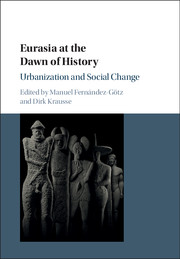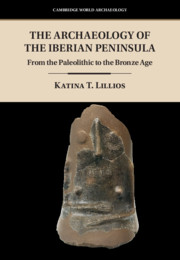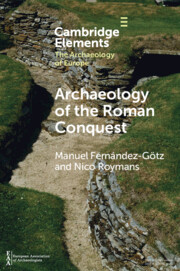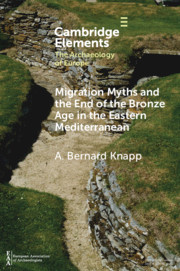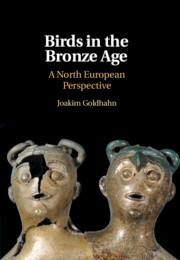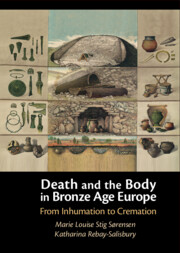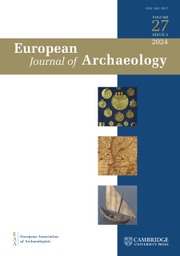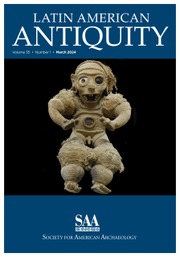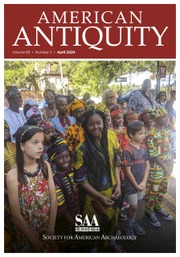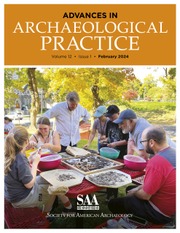Eurasia at the Dawn of History
Urbanization and Social Change
$164.00 (C)
- Editors:
- Manuel Fernández-Götz, University of Edinburgh
- Dirk Krausse, State Office for Cultural Heritage Baden-Wuerttemberg, Germany
- Date Published: January 2017
- availability: Available
- format: Hardback
- isbn: 9781107147409
$
164.00
(C)
Hardback
Other available formats:
eBook
Looking for an examination copy?
This title is not currently available for examination. However, if you are interested in the title for your course we can consider offering an examination copy. To register your interest please contact collegesales@cambridge.org providing details of the course you are teaching.
-
Our current world is characterized by life in cities, the existence of social inequalities, and increasing individualization. When and how did these phenomena arise? What was the social and economic background for the development of hierarchies and the first cities? The authors of this volume analyze the processes of centralization, cultural interaction, and social differentiation that led to the development of the first urban centres and early state formations of ancient Eurasia, from the Atlantic coasts to China. The chronological framework spans a period from the Neolithic to the Late Iron Age, with a special focus on the early first millennium BC. By adopting an interdisciplinary approach structured around the concepts of identity and materiality, this book addresses the appearance of a range of key phenomena that continue to shape our world.
Read more- Offers a renewed approach on early urbanization processes
- Brings together leading scholars from different academic traditions
- Provides an interdisciplinary perspective on identity and materiality
Customer reviews
Not yet reviewed
Be the first to review
Review was not posted due to profanity
×Product details
- Date Published: January 2017
- format: Hardback
- isbn: 9781107147409
- length: 436 pages
- dimensions: 260 x 185 x 31 mm
- weight: 1.09kg
- availability: Available
Table of Contents
Part I. Between Myth and Logos:
1. Materialities of complexity in ancient Eurasia Manuel Fernández-Götz and Dirk Krausse
2. Cognitive archaeology and the making of the human mind Colin Renfrew
3. History of writing, history of rationality David Olson
4. The impact of social differentiation on identity: lights and shadows of the individualization process Almudena Hernando
5. The Neolithic conquest of the Mediterranean Jean Guilaine
6. Low-density urbanism: the case of the Trypillia group of Ukraine John Chapman and Bisserka Gaydarska
7. From the Neolithic to the Iron Age – demography and social agglomeration: the development of centralized control? Johannes Müller
8. Early state formation from a big history point of view Fred Spier
9. Reframing ancient economies: new models, new questions Gary Feinman
10. How can archaeologists identify early cities? Definitions, types, and attributes Michael E. Smith
11. Towns between de-territorialisation and networking: on the dynamics of urbanization in the global context Hans-Peter Hahn
Part II. Ancient Civilizations at the Turn of the Axis:
12. Egypt in the 'axial age' Jan Assmann
13. Conservative vs innovative cultural areas in the Near East Mario Liverani
14. Elite burials in first-millennium BC China: towards individualization Alain Thote
15. Giant tumuli of the Iron Age: tradition – monumentality – knowledge transfer Svend Hansen
Part III. Times of Connectivity: The Mediterranean on the Move:
16. Agency, structure, and the unconscious in the longue durée John Bintliff
17. Phoenicians abroad: from merchant venturers to colonists María Eugenia Aubet
18. Spheres of interaction: temperate Europe and the Mediterranean world in the Iron Age John E. Collis
Part IV. Early Urban Cultures from South to North:
19. The determinacy of space and state formation in archaic Greece Jonathan M. Hall
20. Intercultural networks and urbanization in Southern Italy in the early Iron Age Massimo Osanna
21. Power and place in Etruria Simon Stoddart
22. Urbanization processes and cultural change in the early Iron Age of Central Europe Manuel Fernández-Götz and Dirk Krausse
23. Founding rituals and myths in the Keltiké Martín Almagro-Gorbea
Part V. Changing Symbols, Changing Minds?:
24. Phase transition, axial age, and axis displacement: from the Hallstatt to the La Tène culture Rudolf Echt
25. Early Celtic art in context Otto-Herman Frey
26. Images, ornament, and cognition in early La Tène Europe: a new style for a changing world Peter S. Wells
27. The network genesis of the La Tène cultures: a western point of view Pierre-Yves Milcent.
Sorry, this resource is locked
Please register or sign in to request access. If you are having problems accessing these resources please email lecturers@cambridge.org
Register Sign in» Proceed
You are now leaving the Cambridge University Press website. Your eBook purchase and download will be completed by our partner www.ebooks.com. Please see the permission section of the www.ebooks.com catalogue page for details of the print & copy limits on our eBooks.
Continue ×Are you sure you want to delete your account?
This cannot be undone.
Thank you for your feedback which will help us improve our service.
If you requested a response, we will make sure to get back to you shortly.
×
